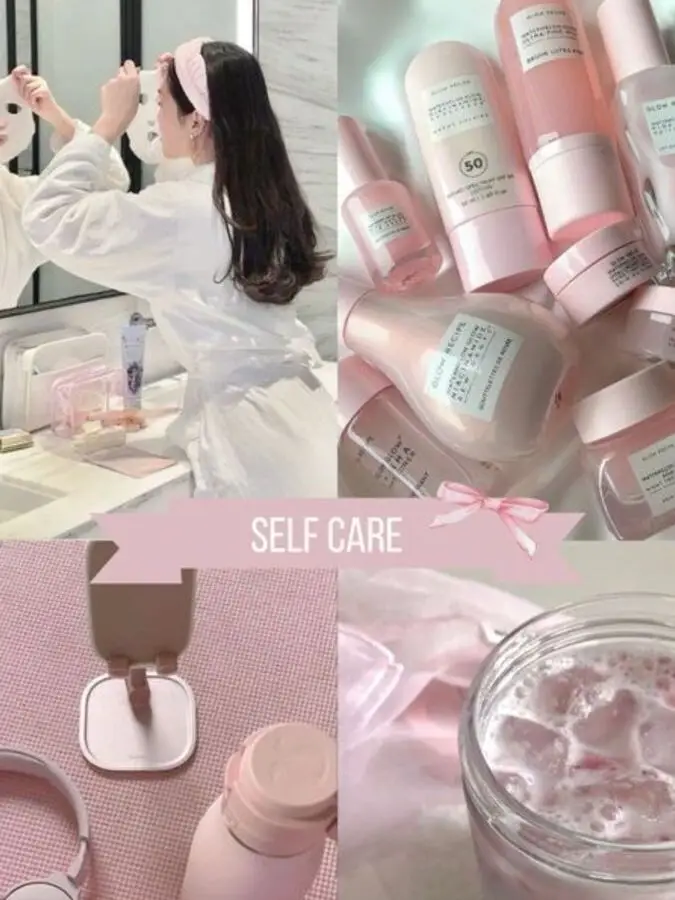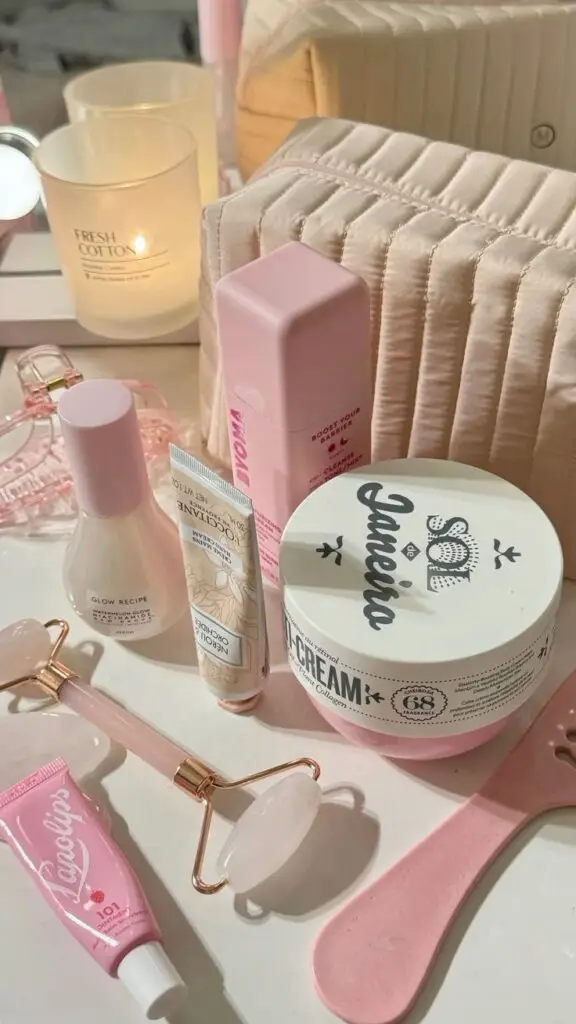In today’s fast-paced world, taking time for self-care has become more important than ever. Self-care isn’t just about pampering yourself; it’s about addressing your physical, emotional, and mental well-being through deliberate activities that recharge and rejuvenate you. Whether you’re dealing with stress, anxiety, or simply trying to maintain balance in your life, a solid self-care routine can make all the difference.
Building a consistent self-care routine will reduce stress, increase your energy levels, and cultivate self-love while positively affecting other areas of your life. By incorporating regular self-care practices into your daily schedule, you can create sustainable habits that support your overall wellness. Self-care doesn’t need to be complicated or time-consuming—even small, intentional actions can have profound effects when practiced regularly.



1) Set daily goals for your self-care activities
Setting specific daily self-care goals helps turn good intentions into consistent habits. Start by identifying what activities would truly nurture your wellbeing rather than just following generic advice.
Create small, achievable goals that you can realistically fit into your schedule. Instead of vaguely planning to “exercise more,” commit to “walking for 20 minutes after lunch” or “doing 10 minutes of stretching before bed.”
Write down your self-care goals where you’ll see them daily. This could be in your planner, a note on your phone, or a sticky note on your bathroom mirror.
Remember that self-care isn’t just about bubble baths and face masks. Ask yourself key questions like: Am I getting adequate sleep? Is my diet fueling my body? Am I taking time for my mental health?
Track your progress to stay motivated and adjust your goals as needed. Some days you might need more rest, while others might call for more social connection.
Be kind to yourself when you miss a day. The goal isn’t perfection but creating a sustainable routine that genuinely supports your wellbeing.


2) Incorporate a mix of physical exercise, like a 30-minute walk
Physical activity is a crucial component of any self-care routine, and it doesn’t have to be overwhelming. Even when your schedule feels packed, finding 5 to 30-minute blocks for movement can make a significant difference in your overall wellbeing.
Start slowly and build up gradually. If you’re new to exercise, begin with a gentle 10-minute walk around your neighborhood and gradually increase your time as your body adjusts. Remember that consistency matters more than intensity.
Try incorporating different types of movement throughout your week. A 30-minute walk one day, some gentle stretching another, and perhaps a short yoga session can provide variety that keeps you engaged and works different muscle groups.
Don’t underestimate the power of movement breaks during your workday. Even standing up and stretching for a few minutes every hour can counter the negative effects of sitting and refresh your mind.
Schedule physical activity like any other important appointment. Adding it to your calendar increases the likelihood you’ll follow through and signals to yourself that your wellbeing is a priority.


3) Start your day with a mindfulness meditation
Beginning your morning with mindfulness meditation can set a positive tone for your entire day. Even just five minutes of quiet reflection can help you feel more centered and prepared for whatever lies ahead.
Find a comfortable spot where you won’t be disturbed and sit in a relaxed position. Focus on your breathing – notice how it feels as air enters and leaves your body. When your mind wanders, gently bring your attention back to your breath.
You might enhance your practice by setting an intention for the day. This could be something simple like being patient with yourself or showing kindness to others.
Try incorporating mindfulness into your existing morning activities. Mindful tooth-brushing, showering, or coffee-drinking can transform routine tasks into meaningful moments of awareness.
For beginners, guided meditations from apps or videos can provide helpful structure. Don’t worry about “doing it right” – mindfulness is a practice, not a performance.
Over time, this morning ritual can help reduce stress and improve your focus throughout the day. You’ll likely notice yourself becoming more aware of your thoughts and feelings without getting caught up in them.


4) Include fresh fruits and vegetables in your meals
Adding more fruits and vegetables to your diet is a simple yet powerful form of self-care. According to health experts, half of your plate should consist of fruits and vegetables at each meal. This ensures you get essential vitamins, minerals, and fiber your body needs.
Try keeping a bowl of fresh fruit visible in your kitchen to encourage healthy snacking. When hunger strikes between meals, reach for an apple or banana instead of processed snacks. Dried fruits also make convenient, nutritious options when you’re on the go.
Drinking enough water complements your fruit and vegetable intake. Aim for 8-12 cups daily, increasing this amount if you’re physically active or consuming diuretics like coffee or tea.
Colorful stir-fries are an excellent way to incorporate various vegetables into one delicious meal. The more diverse colors on your plate, the wider range of nutrients you’re consuming.
Remember that eating a diet rich in fruits and vegetables can reduce your risk of several chronic diseases. Small changes, like adding a side salad to your lunch or blending fruits into a morning smoothie, can significantly impact your overall health and well-being.


5) End your day with a relaxing bedtime routine
Creating a peaceful bedtime routine is a wonderful way to show yourself some love after a busy day. Start winding down at least an hour before you plan to sleep, which gives your body and mind time to transition.
Turn off bright screens and dim the lights to signal to your brain that it’s time to rest. The blue light from phones and computers can interfere with your natural sleep cycle, so try to disconnect early.
Engage your senses with calming elements like soft music, gentle stretches, or a warm bath. Even five minutes of light yoga or deep breathing can help release tension from your day.
Consider incorporating a quick journaling session to empty your mind of any lingering thoughts or worries. Writing down tomorrow’s tasks can prevent midnight anxiety about forgetting something important.
Develop a consistent skincare ritual that feels nurturing rather than rushed. The simple act of caring for your skin can become a meaningful self-care moment.
Remember that consistency is key—try to follow your routine every night, even on weekends. Your body will thank you with better sleep and a more refreshed morning.


Understanding the Importance of Self-Care
Self-care is essential for maintaining balance in your life and protecting your overall health. When you prioritize self-care, you’re investing in both your mental and physical well-being, which can lead to improved quality of life and resilience against daily stressors.
Mental Health Benefits
Taking time for self-care can significantly reduce anxiety and stress levels. When you engage in activities that bring you joy, you’re actively combating negative thought patterns that can lead to burnout or depression.
Regular self-care practices help build emotional resilience, making it easier to handle life’s challenges. This doesn’t mean you’ll never feel stressed, but rather that you’ll have better tools to cope when difficulties arise.
Mindfulness, a common self-care practice, helps you stay present and can improve your concentration and focus. By setting aside even a few minutes daily for mindfulness exercises, you can train your brain to be less reactive to stressors.
Self-care also fosters a positive relationship with yourself, building self-esteem and confidence. When you treat yourself with kindness, you reinforce your own worth and value.
Physical Well-Being
Self-care directly impacts your physical health through habits like getting adequate sleep, eating nutritious meals, and exercising regularly. These fundamental practices strengthen your immune system and help prevent illness.
Many people don’t realize that physical and mental health are deeply connected. When you address your physical needs through self-care, you’re simultaneously supporting your mental health and vice versa.
Regular exercise, a key component of physical self-care, releases endorphins that improve your mood and energy levels. Even just 30 minutes of moderate activity several times a week can make a noticeable difference in how you feel.
Rest is equally important – giving your body enough time to recover through quality sleep enables cellular repair and helps regulate hormones. Try to aim for 7-8 hours of sleep each night to experience optimal physical benefits from your self-care routine.


Creating a Personalized Self-Care Plan
Developing a self-care plan that works for you requires understanding your unique needs and establishing achievable goals. Your plan should reflect your personal circumstances, preferences, and lifestyle to ensure it becomes a sustainable part of your daily routine.
Identifying Your Needs
Start by assessing your current situation and how you’re feeling physically, emotionally, and mentally. What areas of your life feel neglected or need more attention? Pay attention to when you feel drained or stressed as these are indicators of unmet needs.
Create a simple self-assessment by asking yourself:
- When do I feel most depleted?
- What activities currently restore my energy?
- Which aspects of my well-being am I neglecting?
Consider the five dimensions of self-care: physical, emotional, social, spiritual, and intellectual. You might notice you’re maintaining physical health through exercise but neglecting social connections.
Be honest about your current coping mechanisms. Some might be helpful while others could be detrimental in the long run. Journaling about your needs for a week can reveal patterns you hadn’t noticed before.
Setting Realistic Goals
Transform your identified needs into concrete, achievable goals. Small, manageable steps are more sustainable than dramatic lifestyle changes.
Use the SMART approach to craft your goals:
- Specific: “I will practice 10 minutes of meditation” rather than “I’ll be more mindful”
- Measurable: Track your progress with journaling or an app
- Achievable: Choose activities that fit into your current lifestyle
- Relevant: Select practices that address your specific needs
- Time-bound: Start with daily or weekly targets
Be flexible with your plan. If morning meditation doesn’t work, try evening instead. Remember that self-care isn’t selfish—it’s necessary for your well-being and helps you show up better for others.
Celebrate small wins along the way. Even five minutes of deep breathing counts as progress toward your self-care goals.





